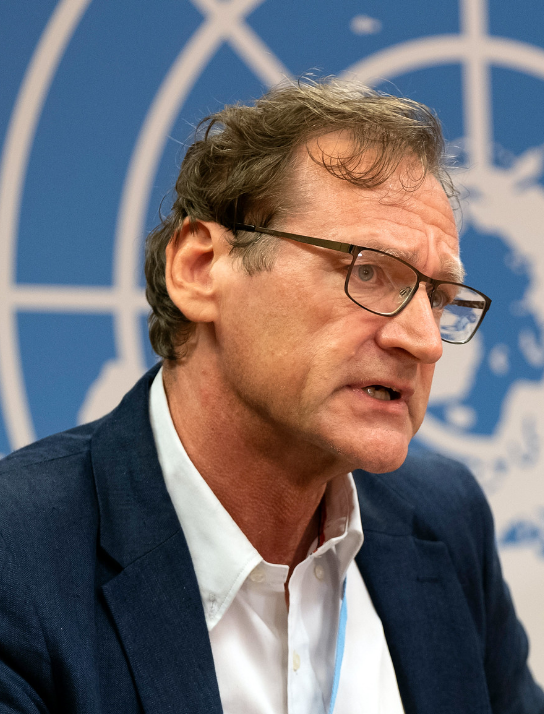Daniel Kaufmann addressed the questions of “What is governance?, Can it be measured?, Power of data, of facts, Does governance matter?, What is corruption its link to governance? and vulnerable sectors?” in his lecture.
He argued that governance is as the set of traditions and institutions by which authority in a country is exercised—specifically covers the process by which those in authority are selected and replaced, the capacity of government to formulate and implement policies, the respect of citizens and state for institutions that govern interactions among them. He explained the Worldwide Governance Indicators that include data on six dimensions of governance covering
well over 200 countries from 1996 until the present, Synthesis of hundreds of underlying indicators taken from about 30 different data sources, aggregate and individual indicators available at www.govindicators.org, about largest publicly-available governance database in the world, result of longstanding research project, featuring the “Governance Matters” series. Individual sources for constructing the WGI includes Cross-Country Surveys of Firms: Global Competitiveness Survey, World Competitiveness Yearbook, BEEPS; Cross-Country Surveys of Individuals: Gallup World Poll, Global Corruption Barometer, Latinobarometro, Afrobarometer; Expert Assessments from Commercial Risk Rating Agencies: Global Insight, Political Risk Services, BERI, Economist Intelligence Unit, Merchant International Group, IJET Travel Consultancy, Asia Risk Consultancy; Expert Assessments from NGOs, Think Tanks: Reporters Without Borders, Heritage Foundation, Freedom House, Bertelsmann Foundation, Amnesty International, IREX, Global Integrity, Binghamton University, International Budget Project and Expert Assessments from Governments, Multilaterals: World Bank CPIA, EBRD, AFDB, ADB, State Department, OECD, IFAD. He gave country examples from Colombia, Venezuela, Brazil, Chile, Indonesia, Ukraine, Russia, South Afrika, Turkey and UK.
Governance and Anti-Corruption in Natural Resources are important for tackling the development challenge of the decade. Kauffman argued that the resource curse persists for about one billion people living in poverty in the midst of abundance but good natural resource governance is possible. Yet most resource-intensive countries face a major ‘government deficit’. In those countries, the poor is not benefiting from their resource riches.
Countries with good or satisfactory voice and accountability perform better in value realization and revenue management. Voice and accountability is most strongly associated with performance in value realization and revenue management components. Civic space is linked to potential for good value realization and sound revenue management.
He ended his lecture with recommendations from the Resource Governance Index:
Strengthen the implementation of laws and regulations in extractives—particularly in areas related to the environment, local communities and subnational revenue sharing.
Shed light on the true beneficial owners of companies, the commercial interests of officials and their associates, the deals governments make, and the detailed project-level payments companies make to governments.
Strengthen the regulation and disclosure of oil sales. Establish independent governing boards; make appointments according to well-defined, meritocratic processes; and emphasize technical expertise rather than political patronage.
Open civic space where citizens and journalists lack freedoms to speak up and hold their governments to account. Strengthen rule of law, regulatory quality and corruption control so that laws specific to the extractives sector will have impact in practice.
Strengthen the global framework for natural resource governance, including how multinational companies behave. Global initiatives should help countries to institutionalize extractives governance reforms within country systems and make companies more accountable.
Assess the quality of resource governance and use data to improve institutions, policies and practices. Develop institutional systems providing regular and timely gathering, analysis and dissemination of key data in resource-rich countries. Public information about the resource sector is released in line with the Open Data Charter standards.






